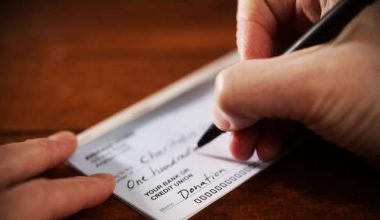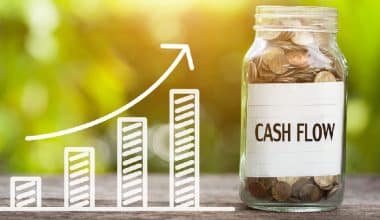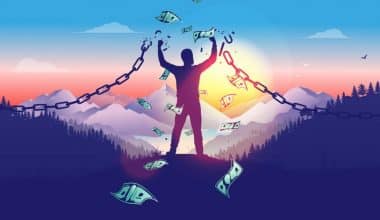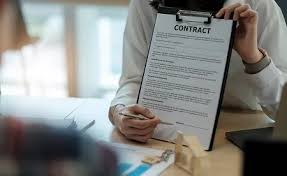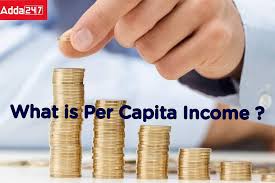Defaulting on a loan occurs when repayments are not made for an extended period of time. When a loan defaults, it is assigned to a debt collection agency, whose mission is to contact the borrower and collect the overdue payments. Furthermore, defaulting on an unsecured loan will significantly lower your credit score, damage your ability to obtain future credit, and may result in the confiscation of personal property. If you are unable to make timely payments, you must contact your lender or loan servicer to discuss modifying your loan conditions or how to get the default removed. We will also be discussing the consequences of defaulting on a loan.
What is Defaulting on a Loan?
Defaulting on a loan occurs when the borrower fails to make timely or enough repayments of the loan’s principal. If you haven’t made at least the minimum payment on your loan for a set number of months in a row, per the terms of the loan agreement, the lender may declare the loan in default.
When you take out a loan, whether it’s a mortgage, credit card bill, student loan, or any other kind of personal loan, you sign a contract with your lender that legally binds you to the conditions of the loan.
However, the length of time a loan can be late (delinquent) before default is specified in the loan agreement. Mortgages often have a 30-day grace period, whereas some 270-day student loans have longer grace periods. It will also detail the measures your lender can take against you if you default on your loan.
How Loan Default Works
If you default on a loan, your credit score will plummet, and you’ll pay sky-high interest rates on any future loans you take out. In the case of defaulted loans that were guaranteed by collateral, the bank would be entitled to take possession of the collateral. Home mortgages, vehicle financing, and unsecured personal loans are the most common forms of collateralized consumer credit. The severity of the repercussions for defaulting on unsecured obligations like credit cards and student loans varies. The debtor’s wages may be garnished in extreme situations to cover the debt. Lenders may potentially take other measures following a default, depending on the nature of the loan. These are a few examples:
#1. Mortgages
Your home is the security for your mortgage, so if you fail to make your payments, the lender can foreclose on your home and take possession of it. State rules govern the specifics of the foreclosure procedure. However, Non-judicial foreclosures, which do not require the lender to go to court and so may go considerably faster, are permitted in some states, whereas judicial foreclosures, which require the lender to receive a judgment from the courts, are required in others.
#2. Student Loans
In the event of defaulting on an unsecured loan, private student loans are normally handled in the same manner as consumer loans and credit cards. However, the procedure for federal student loans is different. If it has been more than 30 days since your last payment on a federal loan, you are now considered to be late. It is regarded as having defaulted on its loan after 270 days. The federal government has the unusual ability to garnish your earnings in the event of a default on a student loan, but creditors of most other types of debt must first file suit in court to collect.
#3. Car Loans
If you default on a car loan, the lender may try to recuperate their losses by repossessing and selling your vehicle. If the proceeds from the car’s sale aren’t enough to cover the loan balance, the lender can sue you and seek a judgment for the remaining balance.
What Happens if a Loan Goes Into Default?
If a loan goes into default, it is the responsibility of the debt collection agency to get in touch with the borrower and collect any overdue payments. If you default on a loan, it can destroy your credit rating, prevent you from getting any new loans, and even result in the seizure of your personal belongings.
Defaulting on a Loan Consequences
There will be consequences for defaulting on a loan, whether unsecured or not. If you default on a loan, lenders will view you as a high-risk customer and may avoid lending to you in the future. Here are some of the consequences of defaulting on a loan.
#1. Fees and Expenses Go Up
Debt can increase as a result of defaulting on a loan. If you are late with a payment, you may incur late fees, penalties, and potentially legal costs.
Actually, when you include compound interest, the total amount of debt you owe will increase rapidly over time. If you fail to make your monthly payment on time, the finance charge will be applied to the outstanding loan total, and the interest you owe will increase accordingly.
#2. Financial Harm to Your Credit
Defaulting on a loan will have a negative impact on your credit score. There are a number of components that make up your credit score, but payment history accounts for the bulk of that score. Whether you have a balance on a credit card, a loan, or a line of credit, this will affect your overall financial condition.
Additionally, there are lenders who will report late payments as loan defaults. If you skip a payment and it goes into default, it won’t affect your credit score for 30 days, but it will hurt your score after that.
#3. Legal Problems
As a last resort, financial institutions will turn over outstanding loans to collection agencies. The collection process can have negative repercussions on your credit, lead to court judgments, and cost you money. Debt collectors may be a major pain in the neck in certain unlucky situations
In addition, lenders can garnish wages and even seize assets with a court decision. Also, read LOAN DEFAULT: How To Get Out of Loan Default
What Is Considered a Loan Default?
When a borrower stops making their scheduled payments on a loan or otherwise violates the terms of the loan, the loan is said to be in default. Your current financial condition may suffer, and your future financial goals may be hampered if you default on your loans.
Is Loan Default a Criminal Offense?
Defaulting on an unsecured loan is considered a civil infraction rather than a criminal act. Borrower rights persist even after default, and the bank must honor them. Some people lose their jobs, become disabled, or experience other unexpected drops in income and are therefore unable to keep up with their loan payments.
What is Defaulting on an Unsecured Loan?
You may be concerned about the consequences of defaulting on an unsecured loan such as a personal loan, school loan, or line of credit. After all, your written agreement to repay the debt is the primary basis for an unsecured loan. Alternatively, if you default on a secured loan like a mortgage or vehicle loan, you stand to lose the collateral (the house or vehicle, respectively) that you put up as security.
What Is an Unsecured Loan?
An unsecured loan is one that doesn’t necessitate the pledge of collateral, such as a car or a savings account, in order to secure the loan. Instead, a lender will look at your credit score to determine how much of a danger you pose as a borrower. So, higher credit ratings are typically needed for the approval of unsecured loans.
In addition, personal loans are a popular type of unsecured credit. Loan amounts for personal use might range from $1,000 to $50,000, with fixed monthly payments.
The Consequences of Defaulting on an Unsecured Loan
There is typically a grace period before late payments are reported to credit reporting agencies. However, if you continue to skip payments on a loan, you can expect to incur late fees or penalties, have your wages garnished, and see a significant decline in your credit score (anything from 40 to 80 points).
However, a lender may eventually refer a past-due account to a collections agency in an effort to compel repayment. Your credit report will include any collection efforts for up to seven years. A typical schedule for unsecured loans looks like this:
| 0- 30 days | Minimum payment grace time during which no fees will be imposed |
| 30-60 days | There may be repercussions for your credit score if you pay late, including fees and interest rate increases. |
| 60-120 days | It’s possible the lender will demand repayment in full. When a lender’s collections team flags a customer’s account, trouble is on the horizon. Your credit card account may be closed. |
| 120-180days | A lender writes off the debt and sells it to a collections agency; at this point, a lawsuit may be filed or a settlement offer may be made. |
| 270 days | Due to the fact that student loans have the shortest grace period of any form of unsecured loan, they are now regarded as delinquent. |
Can a Default Be Removed?
If a default was included in the error, only then can you request its removal. Individuals should expect negative effects on their credit for five years after a default. Once a default has been paid, the status will change to “paid,” but it cannot be deleted.
How To Get a Default Removed
Defaulting on a loan cannot be removed from a credit report (unless it was included inadvertently), but its negative impact can be reduced. Here are ways to get default reduced.
#1. Make Contact With the Financial Institution
Get in touch with your lender as soon as possible if you think you will be unable to make your loan installments on time. Let them know what’s going on and see if you can work out a payment plan that will allow you to catch up. Instead of incurring the time and money required for collections, most lenders would rather work with you to find a solution before you fall into default.
#2. Get Your Federal Student Loans Fixed or Consolidated
Two strategies to get out of federal student loan default are rehabilitation and consolidation.
In rehabilitation, you’ll figure out a new repayment plan depending on your discretionary income. Nine consecutively on-time monthly payments will remove the default status from your loan and your credit report.
Consolidate your defaulted federal debts into a new Direct Consolidation Loan and repay it with an income-driven plan.
Third, but less usual, is to repay the loan in full. This won’t work for most debtors, but if you’ve defaulted on your loan but earned a windfall, you may be able to pay it off.
#3. You should get assistance if you feel you need it
A non-profit housing or credit counseling agency is a good place to start if you feel lost when it comes to dealing with your debt. A credit counselor has the training and experience to assess your financial situation, advise you on your options, and assist you in setting priorities and negotiating with your creditors or developing a debt management plan.
How Can I Get Out of a Loan?
Repaying financial obligations is a challenging task. Paying the bills and putting money away for an emergency can feel like an uphill battle at times. However, if you merely pay the interest and the minimum payments on your debts, it might take months, if not years, to get out of debt. Here are ways to get out of a loan.
- Put in more than the bare minimum
- Implement the debt slide strategy.
- Debt refinancing
- Don’t pay more than you have to.
- Evaluate your financial plan.
Conclusion
Defaulting on your loan payments is a disastrous financial move that you should avoid at all costs. It’s crucial to have a good relationship with your lender, but you have other options. Loan default and its unpleasant repercussions can be avoided with some planning in advance.
Defaulting on a Loan FAQs
Can I go to jail for not paying an unsecured loan?
They are not going to put the loan defaulter in jail. Loan default is a civil infraction that can also result in criminal charges. However, this means that a true loan defaulter will never face criminal charges. You can talk to the lender about a repayment plan if you are a true loan defaulter.
How do I stop a default notice?
- Avoid getting new credit at all costs. Please wait at least six months before applying for any further credit.
- It’s important to be prompt with payments.
- Go with the up-front option.
How do you challenge a default?
Get in touch with the creditor that filed the default; you’ll need to provide supporting documents, including credit card or bank statements and receipts, to prove your case. In addition, contact the credit bureaus if the creditor disputes the default marking and claims they made a mistake.
Similar Posts
- JUNK BONDS: Definition & How To Invest In Junk Bonds
- UNSECURED PERSONAL LOAN: Loan Without Collateral
- UNSECURED DEBT: Definition, Types and Examples
- UNSECURED CREDIT: Meaning, Best, and Difference
- ASSET-BASED LENDING: What It Is, Real estate, Bank, LLC & Reviews

